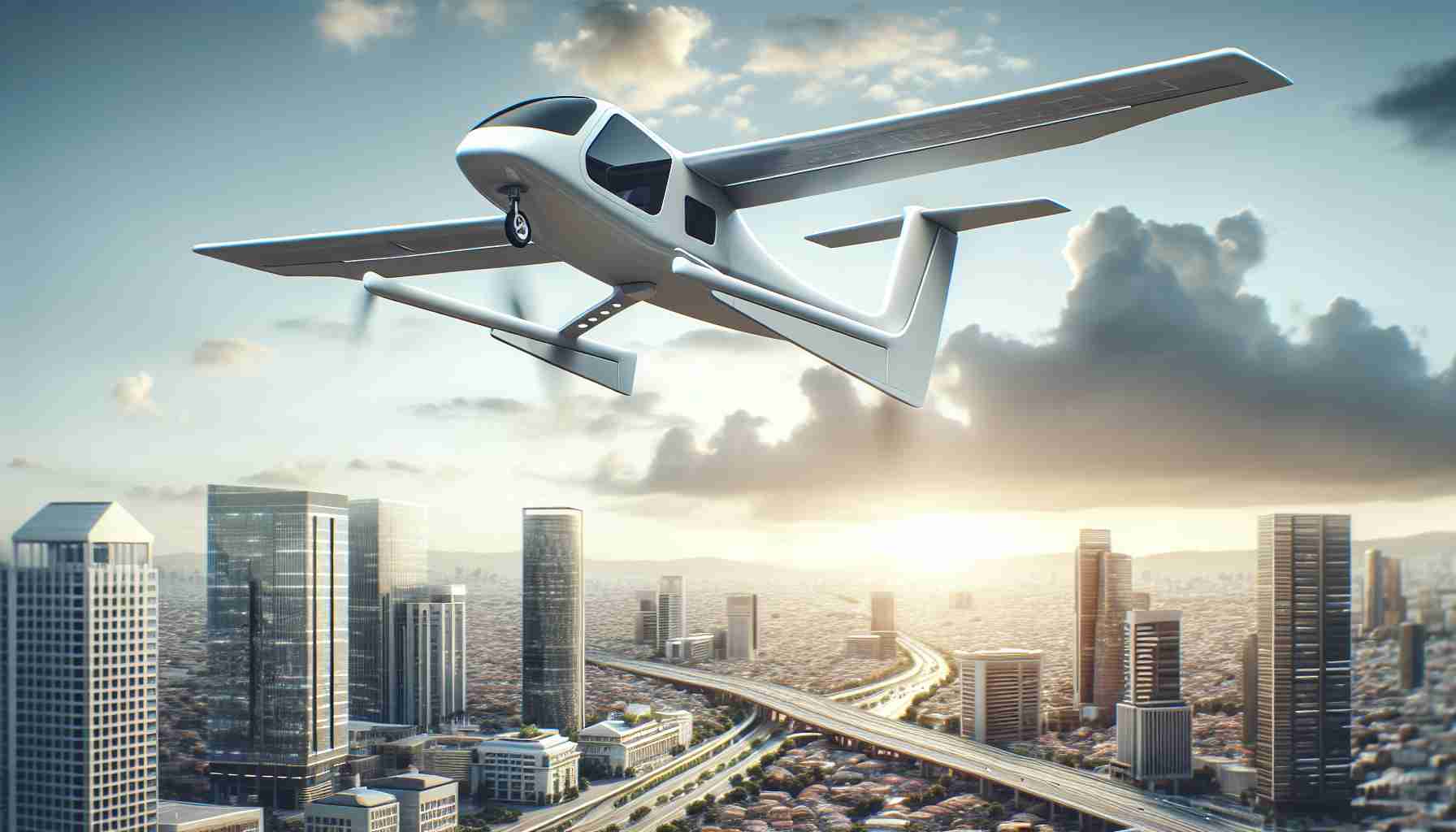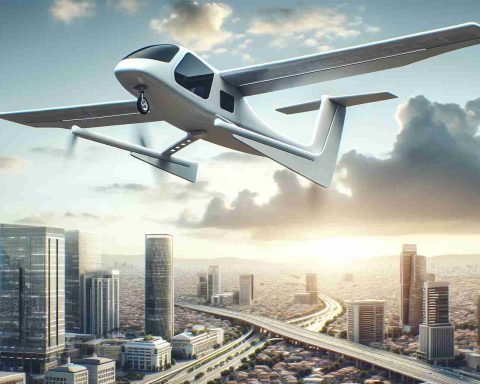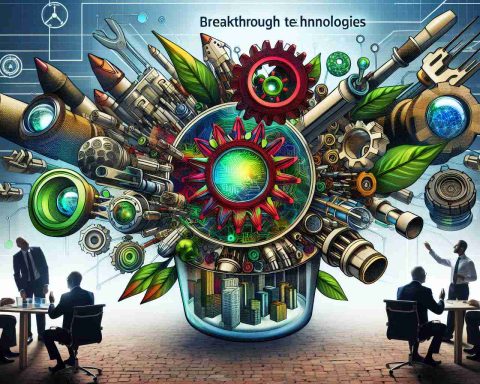In the bustling arena of advanced aerial mobility, Lilium N.V. emerges as a trailblazer, reshaping the future of transportation. Known for their pioneering work, Lilium is developing an all-electric vertical take-off and landing (eVTOL) aircraft. This new technology promises to redefine how we perceive commuting, offering a glimpse into a future where city skylines are navigated as freely as their streets.
At the heart of Lilium’s vision is sustainability. The German-based company aims to provide efficient, zero-emission flights that could dramatically cut down urban congestion and pollution. The Lilium Jet, an ambitious eVTOL model, boasts a remarkable 300-kilometer range on a single charge, with a top speed of 280 km/h, thanks to its innovative 36-engine design.
The integration of such technology could revolutionize not just personal travel but logistics, rescue operations, and more, all while highlighting the importance of sustainable innovation. The company has made significant progress, achieving crucial flight milestones and securing regulatory steps needed for commercial launch, anticipated within the next few years.
As urban populations continue to swell, Lilium’s advancements underscore a broader trend of leveraging new technologies to overcome modern-day challenges. By spearheading this aerial metamorphosis, Lilium N.V. is not just creating a new mode of transport—it’s shaping the very framework of future urban living.
Flying Towards a Greener Tomorrow: Lilium’s Vision for Sustainable Urban Mobility
In a world driven by innovation, the unveiling of advanced aerial mobility solutions by companies like Lilium N.V. represents a beacon of hope for tackling urban challenges and environmental concerns simultaneously. As Lilium works on its all-electric vertical take-off and landing (eVTOL) aircraft, it not only pushes the boundaries of transportation but also signals a paradigm shift toward sustainable urban living.
Environmental Impact
Lilium’s commitment to sustainability through the development of the Lilium Jet can play a significant role in reducing urban air pollution and greenhouse gas emissions. Traditional combustion-engine vehicles contribute significantly to air pollution, which affects climate change and public health due to particulate matter and toxic pollutants. The all-electric nature of eVTOL aircraft promises zero-emission flights, reducing the carbon footprint of urban commutes and offering a cleaner alternative to current transport methods.
Moreover, the ability of these aircraft to operate vertically diminishes the need for extensive infrastructure, like roads and bridges, thereby preserving natural landscapes and minimizing urban sprawl. This technological leap could lay a foundation for more eco-friendly urban expansion and planning, aligning with global efforts to combat climate change and promote sustainable development.
Economic Considerations
Economically, the introduction of eVTOL models like the Lilium Jet could spur the creation of new industries and jobs, from aircraft manufacturing to maintenance and urban air mobility services. The rise of such industries would necessitate skilled labor, fostering employment opportunities and economic growth. As the technology matures, costs are likely to decrease, making air travel more accessible and sparking potential economic benefits from increased productivity and reduced travel times.
Future of Humanity
On a broader scale, integrating this advanced mobility into urban landscapes could transform city infrastructures and influence the evolution of smart cities. As urban populations burgeon, the ability to navigate skies offers a solution to escalating traffic congestion, potentially alleviating the commute crush experienced in mega-cities and improving overall quality of life.
Through pioneering efforts in aerial mobility, Lilium points towards a future where urban life and ecological responsibility coexist harmoniously. The implications of its technology may extend beyond mere transportation, heralding a new era for urban planning that prioritizes environmental sanity, economic viability, and an enhanced human experience. As such innovations evolve, they lay the groundwork for future societies to thrive, embracing a future where human ingenuity leads to harmonious coexistence with the planet.
The Future of Sustainable Aviation: Lilium’s Innovations and Market Insights
In the rapidly evolving field of advanced aerial mobility, Lilium N.V. stands out not only for its cutting-edge technology but also for its commitment to revolutionizing transportation. With its groundbreaking all-electric vertical take-off and landing (eVTOL) aircraft, Lilium is set to transform urban commuting and push the boundaries of sustainable aviation.
Innovations and Features
The centerpiece of Lilium’s ambition is the Lilium Jet, which incorporates several groundbreaking features:
– 36-Engine Design: The unique propulsion system enhances efficiency and reliability, offering a quiet and smooth ride in urban environments.
– Extended Range and Speed: The aircraft impresses with a 300-kilometer range per charge and a top speed of 280 km/h, making it a viable option for longer commutes and regional travel.
– Zero Emissions: Designed for sustainability, the Lilium Jet is a step towards reducing urban pollution and promoting eco-friendly transport solutions.
Use Cases and Market Potential
Lilium’s eVTOL technology isn’t limited to just personal travel. It promises to disrupt various sectors:
– Urban Logistics: With its ability to bypass traffic congestion, the Lilium Jet could redefine logistics and delivery systems in major cities.
– Emergency Services: The aircraft’s swift mobility offers significant advantages for search and rescue operations, potentially saving lives by reducing response times.
– Tourism and Travel: Providing a new way to experience scenic tours, it opens up luxurious commuting options for high-end travelers.
Market Analysis and Predictions
As urban populations grow, the demand for efficient, sustainable transportation solutions is anticipated to skyrocket. Lilium is well-positioned to lead this market with the commercial launch of its eVTOL service predicted within the next few years. The company has already achieved crucial flight milestones and regulatory approvals, indicating a strong trajectory towards market entry.
Furthermore, industry trends suggest a growing interest and investment in green aviation technologies, part of a broader push towards sustainability and carbon footprint reduction. With its innovative eVTOL aircraft, Lilium aligns with these trends and showcases a potential pathway for sustainable urban development.
Challenges and Controversies
Despite its promising outlook, Lilium faces challenges typical of new aviation technologies. These include regulatory hurdles, public acceptance, and infrastructure development necessary to support widespread eVTOL adoption. Additionally, as more players enter the aerial mobility market, Lilium will need to continuously innovate to maintain its competitive edge.
Conclusion
Lilium N.V. is at the forefront of a transportation revolution, offering insights into the future of urban living through its sustainable and efficient eVTOL technology. As it nears commercial readiness, its impact is likely to resonate across various sectors, promising a new era of aerial mobility.
For those interested in learning more about Lilium and its cutting-edge developments, visit the official Lilium website for further details.



















